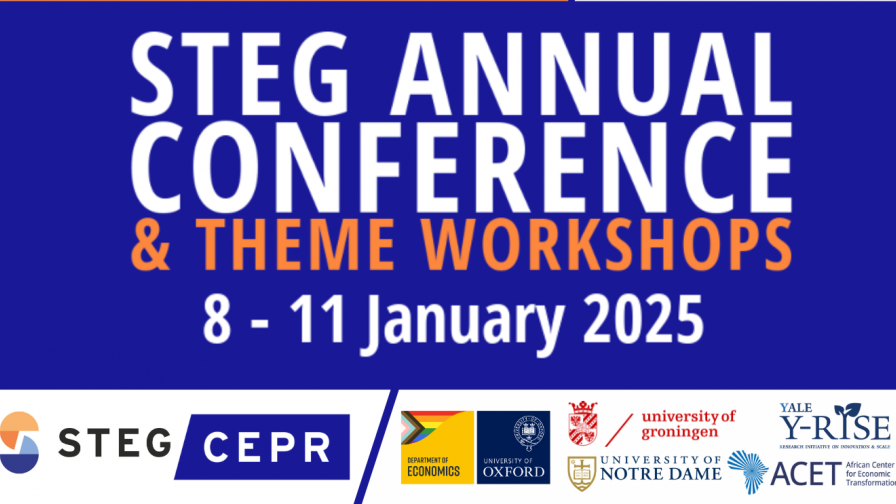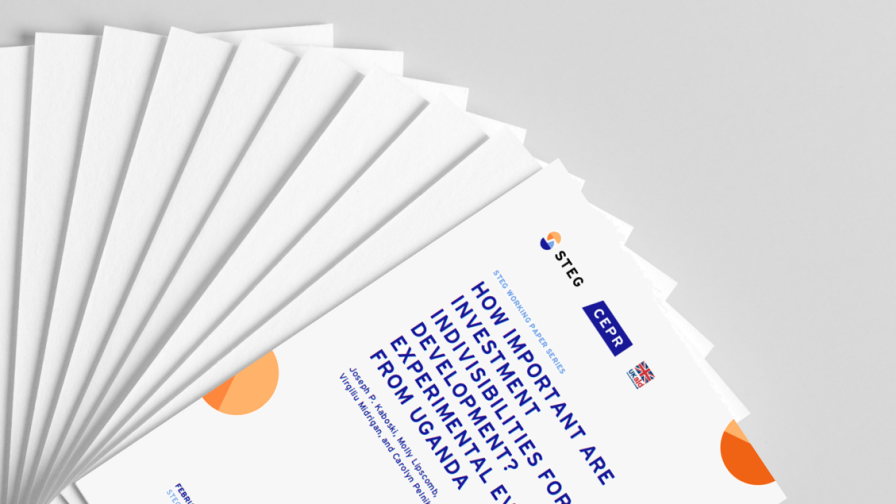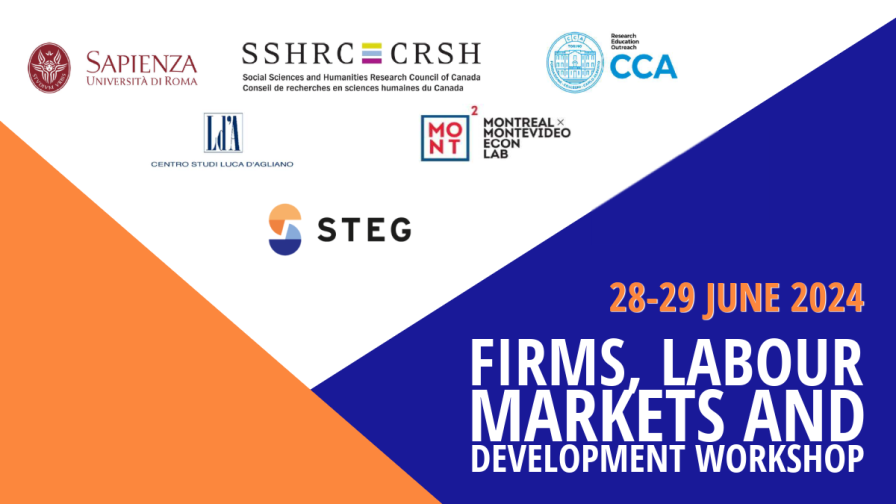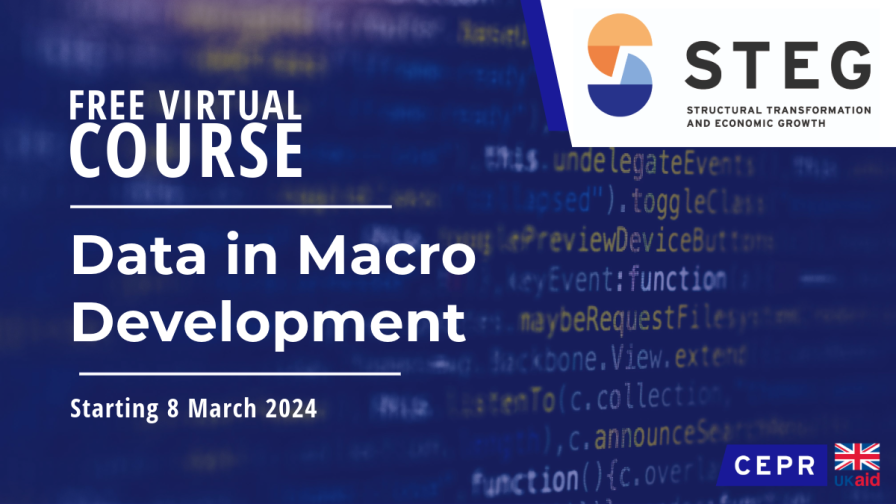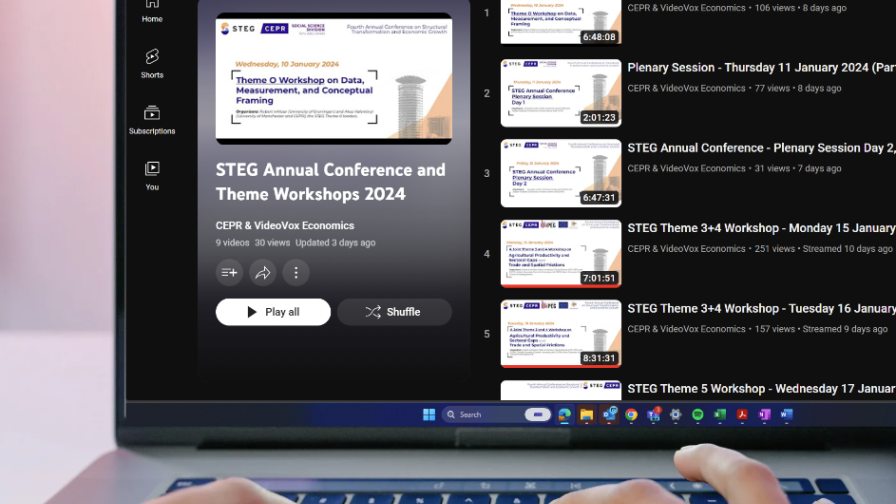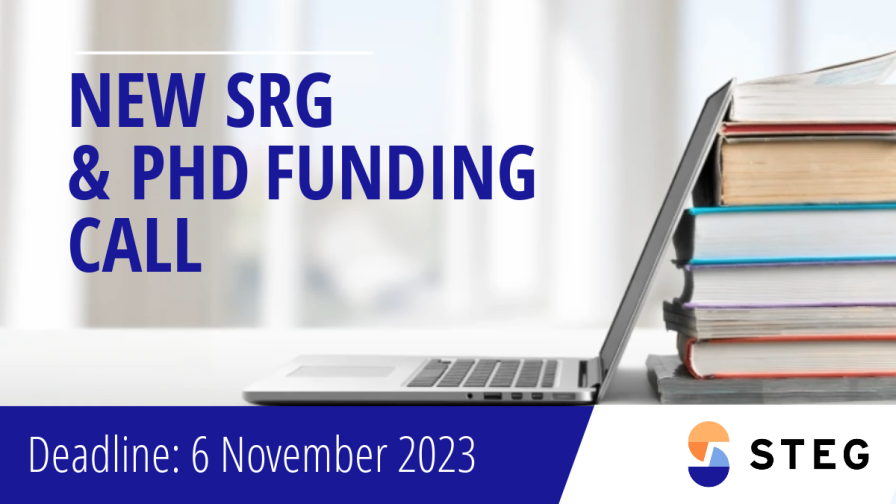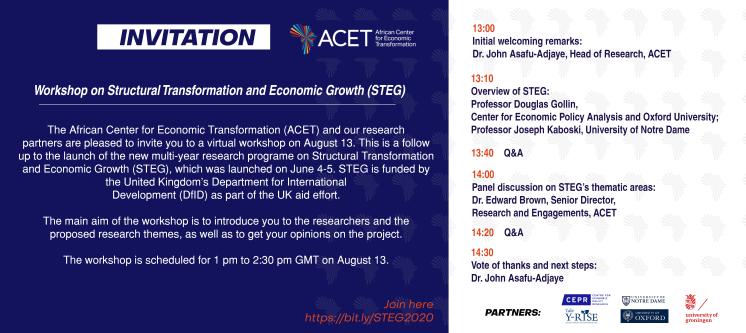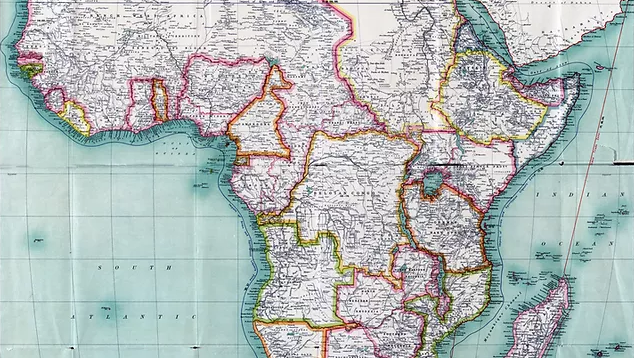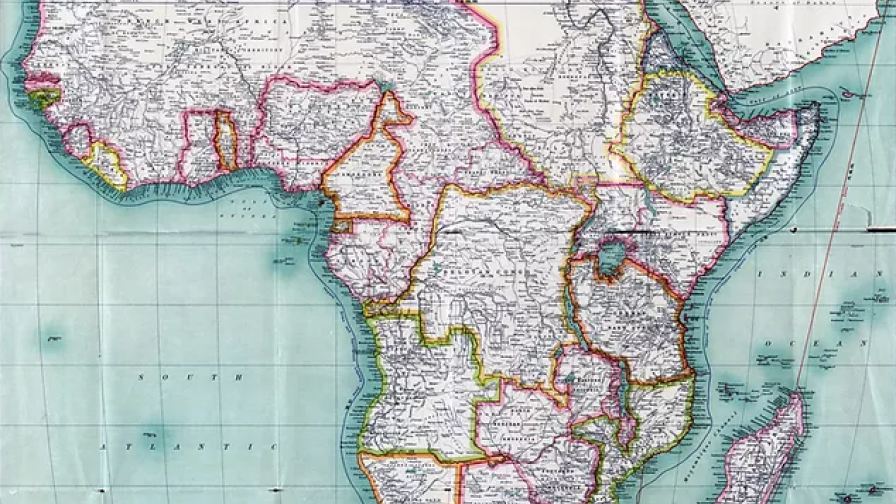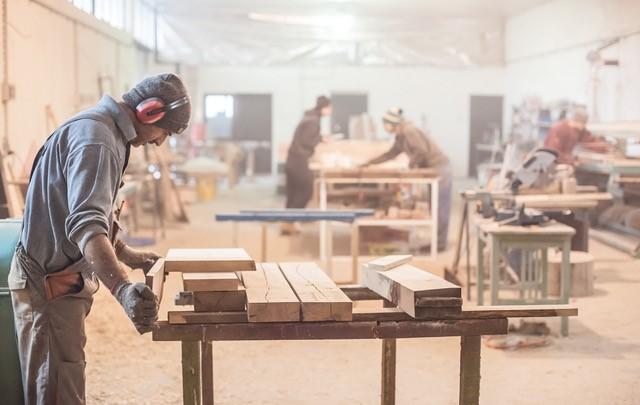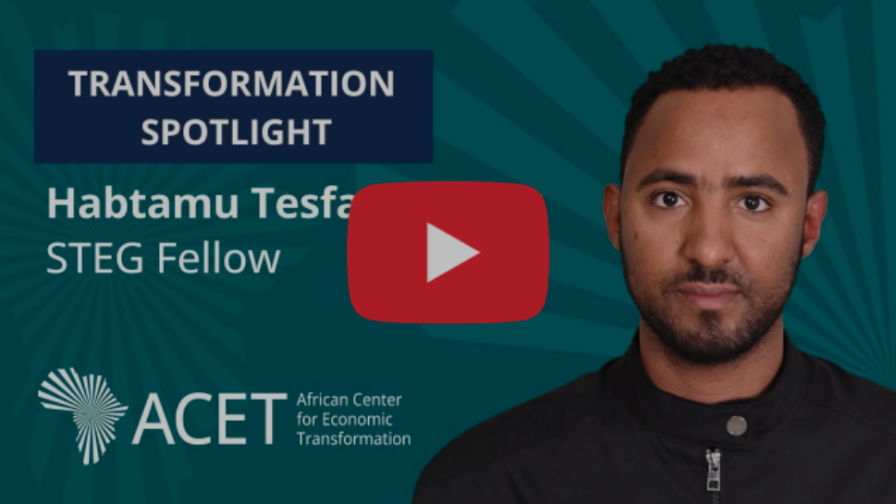Dear All,
STEG isn't slowing down in funding new projects and calls. Keep up to date with all our new grants and calls, as well as other upcoming events.
Our Fourth Small Research Grants Call and Third PhD Research Grants Call are open until 23 May. Send in your application before then!
The Ninth Workshop on Structural Transformation and Macroeconomic Dynamics is taking place 30 to 31 May. Read more on the programme and registration below!
Funding decisions have been made on our Third Small Research Grants Call and Second PhD Research Grants Call. Discover the funded projects in this newsletter!
The Second Larger Research Grants Call and Third Ideas for Transformation Call are currently under evaluation.
Lastly, make sure to get all the dates for upcoming calls and events in your calendar!
Best,
The STEG Team
Open Funding Calls
The Fourth Small Research Grants Call and Third PhD Research Grants Call are closing 23 May. Make sure to apply before then!
Small Research Grants (SRGs) of between £10,000 and £25,000 are our primary research funding vehicle. SRGs can fund research assistance, data collection and/or purchase, travel to field sites, and potentially research stipends/teaching buyouts (if sufficiently justified). While PhD students/candidates are eligible to apply to any SRG funding call, they can also apply to the call exclusively for PhD students. PhD Research Grants are similar to SRGs except funding is only available up to £15,000.
Research may focus on one or more of our research themes or other areas of interest that do not fit cleanly into any of the themes but are centrally relevant to STEG. STEG is also focused around three cross-cutting issues: gender, climate change and the environment, and inequality and inclusion. Research proposals speaking to these issues will receive particular consideration.
Please note that an important criterion for funding of proposals is the relevance to policy in low-income countries, particularly in sub-Saharan Africa. Proposals focused on middle- and/or high-income countries need to make a clear case for the relevance of the research to policy in specific low-income countries.
Find out more about our Small and PhD Research Grants here.
IX Workshop on Structural Transformation and Macroeconomic Dynamics
Registration is now open for the Ninth Workshop on Structural Transformation and Macroeconomic Dynamics! Part funded by STEG, the workshop will be streamed online on 30 and 31 May.
The complete programme of presentations can be found here. Please feel free to share this with your networks.
The workshop on Structural Transformation and Macroeconomic Dynamics was created in 2012 with the idea of bringing together experts in the field of structural change who, at the time, did not have a dedicated conference at which to meet. Since then, the field has expanded substantially, and the workshop has been organised regularly on an almost annual basis, bringing together many of the leading experts in the field. Most of the editions have been organised in Cagliari, Sardinia, Italy, with three notable exceptions: Surrey (UK), 2012, Paris (France), 2014 and Kent (UK) 2016. This year the workshop reaches its ninth edition and is held at the University of Cagliari on 30 and 31 May.
New Projects: Third SRG Call and Second PhD Call
A further twenty-six projects have been funded across our Third Small Research Grants Call and Second PhD Research Grants Call. Our new Small Research Grants are:
- Francesco Amodio, Hoang Pham, and Marco Sanfilippo – FDI, Labour Market Power, and Structural Transformation (Ethiopia)
- Ignacio Banares Sanchez, Oriana Bandiera, Robin Burgess, Tim Dobermann, Jay Euijung Lee, and Hyunjoo Yang – Deciphering the Miracle on the Han: How South Korea Escaped Poverty and Transformed its Economy
- Tiago Cavalcanti and Kilian Kamkar – Forest, Fires and Structural Transformation in Sub-Saharan Africa (Tanzania)
- Mathieu Couttenier – The Local Impact of Artisanal Mining: Evidence from Sub-Saharan African Countries
- Arthur Blouin, Davide Del Prete, and Rocco Macchiavello – Resource Misallocation and Gender Norms: Evidence from the Coffee Sector (multi-country)
- Joachim De Weerdt, Brian Dillon, Todd Gerarden, and Ben Leyden – Mark-ups and Entry in the Food Markets of a Large African City (Tanzania)
- Taryn Dinkelman – Education, Unemployment, and Political Attitudes and Aspirations in Africa (multi-country)
- Gebregiorgis Kokeb – Migration, Remittances and Rural Agricultural Transformation in Ethiopia
- David Lagakos and Yuhei Miyauchi – Labour Supply, Commuting and Structural Transformation in Cities in the Developing World (multi-country)
- Gideon Ndubuisi and Solomon Owusu – Global Value Chains, Job Creation, and Job Destruction among Firms in South Africa
- Anusree Paul, Indrani Roy Chawdhury, and Aditi Roy – Does Climate Change Disproportionately Affect Women? Evidence from Indian (Formal and Informal) Firms
- Ana Margarida Fernandes, Ryan Haygood, Tristan Reed, Jose Daniel Reyes, and Lucas Zavala – Trade Barriers, Producer Concentration, and Consumer Welfare (Chile, Colombia, and Ecuador)
- Niclas Moneke and Céline Zipfel – Female Wage Labour and Fertility: Evidence from Agroprocessing Plants in Kenya
Our new PhD Research Grants are:
- Daniel Agness, Tsegay Tekleselassie, and Tigabu Getahun – Housing and Spatial Spillovers: Evidence from Ethiopian Condominiums
- Nina Buchmann and Colin Sullivan – Paternalistic Discrimination (Bangladesh)
- Lucia Casal and Julieta Caunedo – Diversification and the path to development: the case of sub-Saharan Africa (multi-country)
- Matthew Gordon and Anna Papp – Plastics, Pollution, and the Global Trade in Garbage (multi-country)
- Lisa Ho and Anahita Karandikar – Bringing Work Home: Internet-Mediated Gig Work and Women’s Employment (India)
- Ananya Kotia and Chinmay Lohani – Labour Market Frictions, the Organisation of Labour, and Structural Change (India)
- Sophie Nottmeyer – Using Digital Technology for Agricultural Mechanisation: Evidence from the Tractor Rental Market in Ghana
- Anri Sakakibara – Can Access to Foreign Export Improve the Intrahousehold Bargaining Position of Women in Low-income Countries? (Vietnam)
- Jaedo Choi and Younghun Shim – From Imitator to Innovator: How do firms grow in developing countries? (multi-country)
- Nicolas Syrichas – What Do 36 Million Young Adults Tell Us About Intergenerational Mobility in the Developing World? (multi-country)
- Verena Wiedemann – The Implications of Internet Upgrades for Domestic Market Integration in Kenya
- Ismaël Yacoubou Djima, Zhexun Mo, and Marion Richard – Legacies of military forced labour in Mali: traditional institutions and local development outcomes
- Alexander Yeandle – The Political Consequences of Africa's Information Revolution (Ghana)
Further information on these projects will soon be announced on the STEG website.
Important Dates
Calls under Evaluation
Second Larger Research Grants Call - decisions expected by end of May
Third Ideas for Transformation Call - decisions expected by end of May
Open Calls
Fourth Small Research Grants Call - closes 23 May
Third PhD Research Grants Call - closes 23 May
Opening Soon
Third Larger Research Grants Call - opens early May
Fourth Ideas for Transformation Call - opens early June
Find a provisional call timeline for future calls here.
Upcoming Events
IX Workshop on Structural Transformation and Macroeconomic Dynamics - 30 to 31 May





